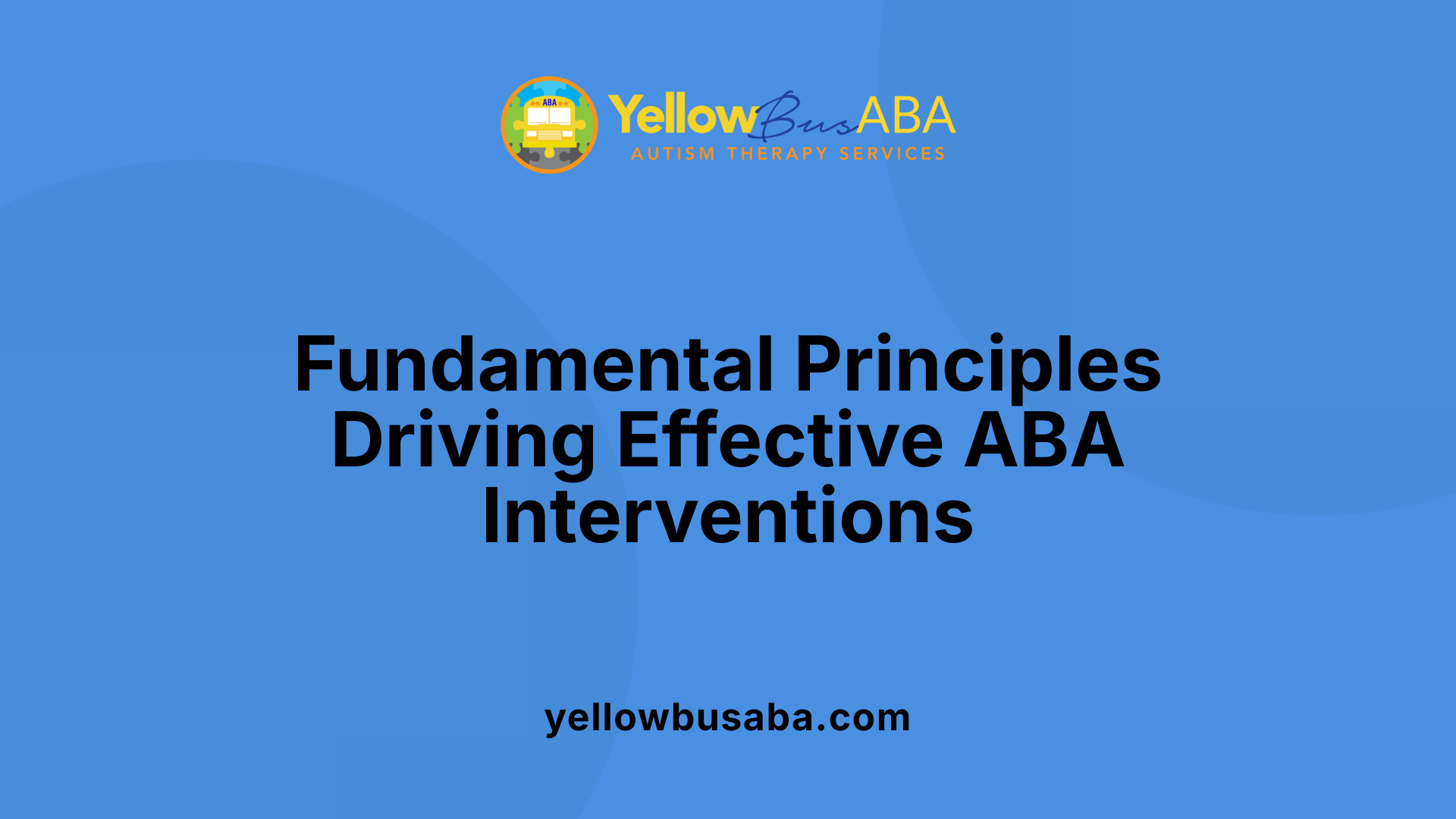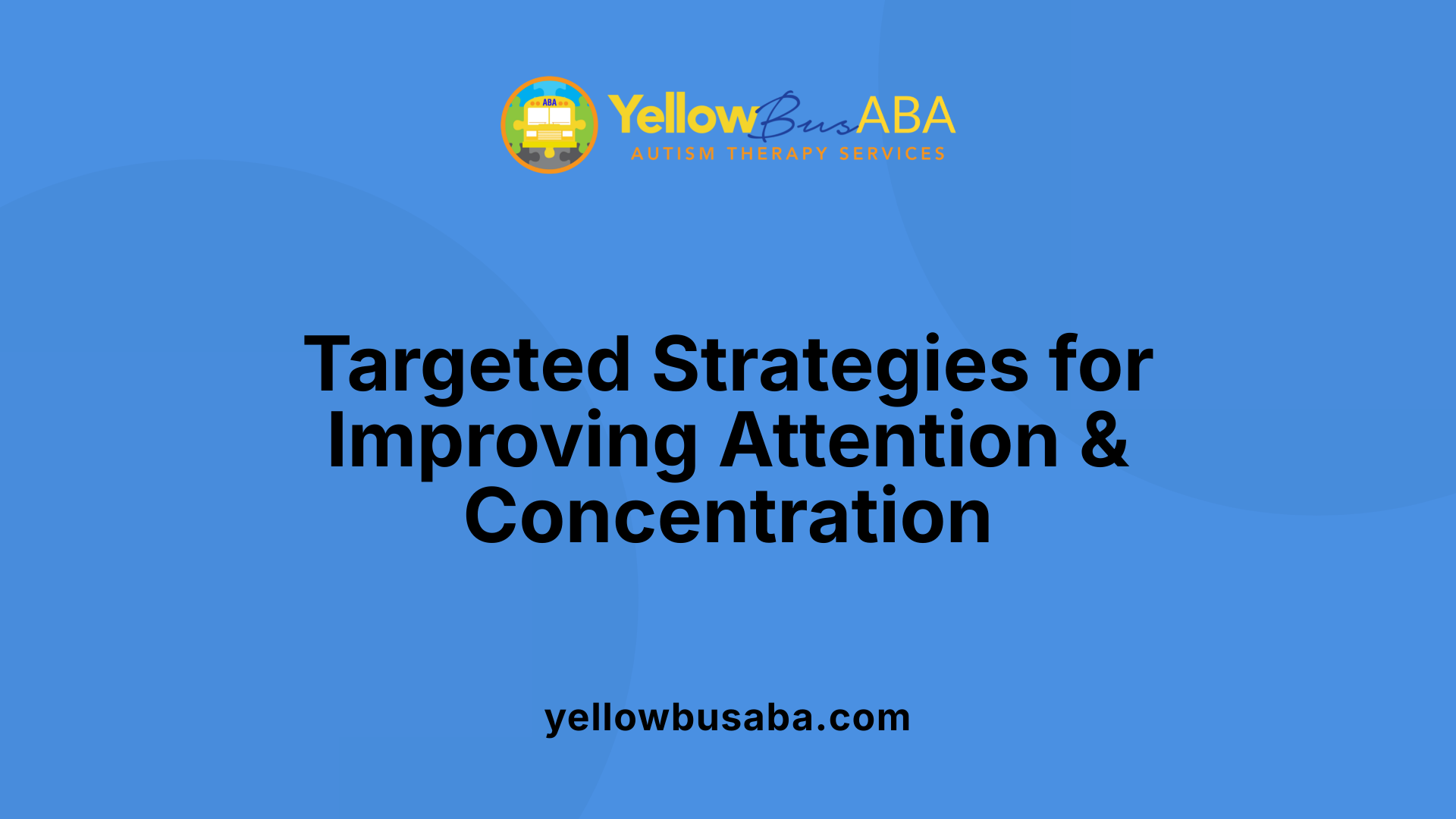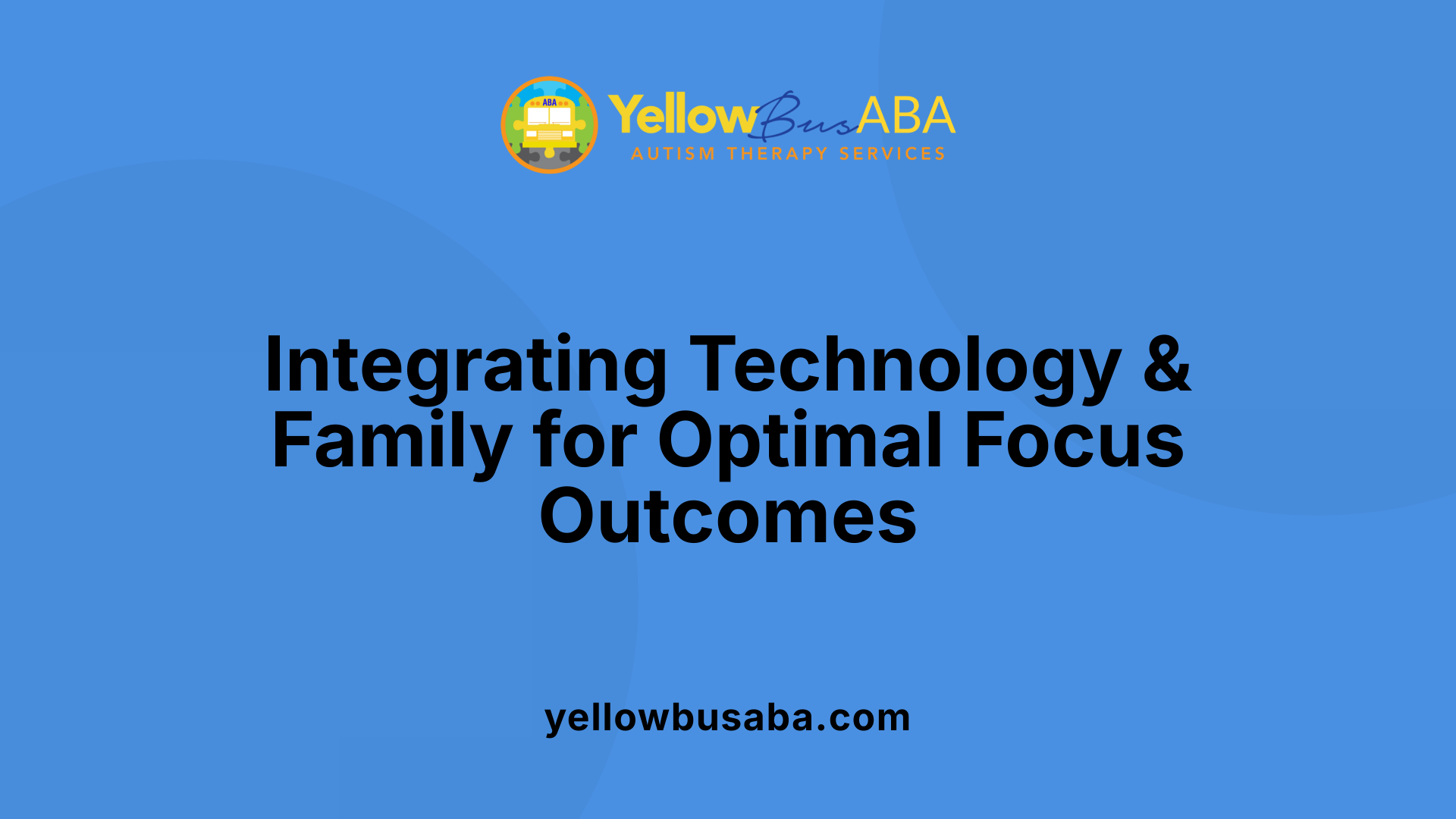Unlocking the Potential of ABA for Better Attention in Children
Applied Behavior Analysis (ABA) therapy has emerged as a highly effective, evidence-based approach to assisting children in overcoming attention and focus challenges. By leveraging behavioral science and tailored strategies, ABA helps children develop the cognitive skills necessary for academic success, social interactions, and adaptive functioning. This article explores how ABA therapy contributes to improved attention and focus, examines its techniques and benefits, and discusses its overall impact on children's developmental progress.
Core Principles and Techniques of ABA Therapy

How can ABA therapy improve attention and focus in children?
ABA therapy enhances attention and focus by using structured, motivational strategies tailored to each child's interests and needs. Techniques like Pivotal Response Training (PRT) focus on increasing motivation and self-regulation through natural reinforcement, making learning engaging and effective.
Discrete Trial Training (DTT) helps children concentrate by breaking tasks into small, manageable steps and providing clear instructions along with rewards for successful actions. These reward systems—such as tokens or praise—encourage children to stay engaged and complete tasks.
Behavior management strategies are also central. ABA therapists identify behaviors that distract or hinder attention and work to replace them with more functional responses. This may involve using visual schedules to provide predictability and consistency, reducing anxiety and uncertainty.
In addition, visual supports like pictures and schedules help children anticipate what comes next, decreasing impulsiveness and increasing focus. Self-management techniques are often incorporated, empowering children to monitor their own behavior and develop impulse control.
Overall, ABA creates a structured environment with clear cues and reinforcements that promote sustained attention. Through consistent application of these techniques, children can improve their focus, which supports better learning, social skills, and overall development.
Specific Techniques Targeting Attention and Focus

What are the benefits and techniques of ABA therapy for enhancing attention and focus?
ABA therapy provides significant advantages for children facing attention and focus challenges, such as those with ADHD. It helps improve sustained awareness, decrease impulsive responses, and foster better organization of tasks. This is achieved through various carefully applied techniques.
One primary approach involves differential reinforcement of alternative behaviors (DRA). This method emphasizes reinforcing desired attentive behaviors while reducing problematic actions. For example, a child might receive praise or tokens for staying focused on a homework task, thereby encouraging continued attention.
Another cornerstone is task analysis. This technique simplifies complex activities by splitting them into smaller, manageable steps. Breaking tasks into parts helps children process and complete them successfully, boosting confidence and focus along the way.
Pivotal Response Training (PRT) is also pivotal, especially for motivation and social skills. PRT emphasizes natural reinforcement, which makes learning engaging and relevant. This approach can increase a child's intrinsic motivation to participate and stay attentive during activities.
Self-management strategies enroll children into the process of regulating their own behaviors. Teaching children to monitor and adjust their actions helps enhance impulse control and focus over time.
Together, these techniques are embedded within a structured, data-driven framework that tracks progress and fine-tunes interventions as needed. The ultimate goal is to help children develop better attention, reduce disruptive behaviors, and participate more fully in learning and social environments.
| Technique | Description | Focus Area |
|---|---|---|
| Differential Reinforcement | Reinforcing desirable behaviors while reducing problematic ones | Attention & Behavior |
| Task Analysis | Breaking down complex tasks into steps | Learning & Task Completion |
| Pivotal Response Training | Using natural reinforcement to motivate | Motivation & Social Skills |
| Self-Management | Teaching self-monitoring and regulation | Impulse Control & Focus |
This tailored approach enhances children’s ability to concentrate, helping them succeed academically, socially, and in daily life.
How ABA Supports Development of Attention and Focus

How does ABA therapy contribute to children's attention and focus development?
ABA therapy plays a significant role in helping children improve their attention and focus skills. One of its main approaches is systematically teaching attentive behaviors through carefully planned exercises. For example, therapists break down complex tasks into smaller, manageable steps known as task analysis, making it easier for children to concentrate on one part at a time.
Reinforcement is also crucial in ABA. When a child demonstrates focused behavior, they receive positive feedback such as praise or small rewards. This approach encourages children to repeat attentive behaviors because they associate staying focused with positive outcomes.
Structured routines and predictable sessions are key components of ABA therapy. Creating a consistent environment helps children feel secure, reducing confusion and distractions. Routine-based activities promote mastery and help children develop the ability to sustain attention over longer periods.
Gradually, the difficulty level of tasks increases. Therapists introduce more challenging activities as children improve, fostering their ability to concentrate on more complex skills. This incremental approach ensures that attention development progresses steadily without overwhelming the child.
Overall, ABA employs evidence-based strategies like task breakdown, reinforcement, and structured routines. These methods work together to support and enhance attention and focus in children, especially those with developmental disorders such as autism.
Overall Impact of ABA on Children's Developmental Skills

What is the overall impact of ABA therapy on attention, focus, and related skills in children?
ABA therapy has proven to be highly effective in enhancing various developmental skills in children, particularly attention, focus, and memory. Through evidence-based techniques such as positive reinforcement and behavior analysis, ABA customizes intervention plans that target specific behaviors or skills.
One of the main benefits of ABA is the improvement in a child's ability to concentrate during activities, which directly supports academic success and better social engagement. By reinforcing desired behaviors and systematically reducing problematic ones, children learn to sustain attention longer, stay organized, and develop better impulse control.
Techniques such as task analysis break complex skills into smaller, manageable steps, helping children master tasks incrementally. Visual schedules, token systems, and reinforcement methods are used to motivate children and maintain their focus during structured learning and play.
As a result, children often show marked progress not only in attention and focus but also in related areas like self-regulation, emotional control, and problem-solving. This holistic development enhances their capacity to participate actively in classroom and social settings.
Moreover, by equipping children with improved attention skills, ABA indirectly fosters better memory retention and information processing, further supporting learning and independence.
Overall, when applied well and tailored to individual needs, ABA therapy offers significant benefits that help children manage their behaviors, achieve developmental milestones, and improve their quality of life. However, the success depends on the quality of implementation and continuous adjustment according to the child's evolving requirements.
The Role of Technology and Family Involvement in ABA

How can ABA therapy improve attention and focus in children?
ABA therapy is highly effective in enhancing attention and focus in children, utilizing tailored reinforcement techniques and structured teaching methods. When children are engaged with carefully designed activities, their ability to concentrate improves.
One common approach includes Pivotal Response Training (PRT), which targets motivation and self-regulation, encouraging children to stay engaged in learning tasks. Discrete Trial Training (DTT) breaks down skills into manageable steps, making learning less overwhelming and easier to grasp. These techniques, combined with clear instructions and meaningful rewards, help children stay focused for longer periods.
Moreover, ABA sessions often incorporate visual aids such as visual schedules or token systems, which provide visual cues and immediate reinforcement. These strategies help children understand expectations, reduce distractions, and maintain curiosity about tasks.
Activities are adapted according to developmental levels, ranging from play-based learning in younger children to more independent tasks for older children and teenagers. This progression ensures that attention skills develop in tandem with overall growth.
In the natural environment, ABA encourages routines that reinforce focus during both structured activities and free play. The integration of engaging activities tailored to personal interests fosters sustained attention.
Overall, ABA creates a supportive learning environment that enhances a child's ability to focus, decreases distractibility, and fosters greater engagement. These improvements translate into better learning outcomes and social interactions, forming a strong foundation for ongoing development.
Transforming Development Through Focused Behavioral Strategies
ABA therapy stands as a powerful, evidence-based approach to fostering attention and focus in children. Through its core techniques—such as reinforcement, task analysis, and behavior management—ABA systematically builds the skills essential for successful learning, social interaction, and daily functioning. The integration of innovative tools and active family involvement further enhances its effectiveness, ensuring that children develop greater independence and confidence. As research continues to affirm its benefits, ABA remains a cornerstone of supportive interventions aimed at transforming children’s lives by improving their ability to focus and engage fully in their environments.
References
- ABA Therapy for ADHD: Effective Strategies for Kids
- Applied Behavioral Analysis Individualized Therapy
- Essential Skills ABA Therapy Helps Early Learners Develop
- Choosing ABA Treatment for Children with Autism
- Technology and Applied Behavior Analysis (ABA)
- Improving Attention Span in Children with Autism Through ...
- Applied Behaviour Analysis (ABA) and autistic children
- Applied Behavior Analysis (ABA)
- The Controversy Around ABA
- Understanding ABA Therapy for ADHD Treatment Options






